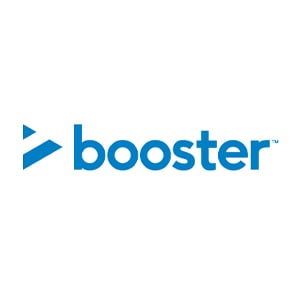The fixed interest investments (or bonds) in portfolios typically perform well during market stress, as investors favour low-risk assets that generate income.
2020 was no exception.
High-quality bonds benefitted from being viewed as a ‘safe-haven’ asset during the Covid-19 uncertainty, and strong demand saw interest rates on long-term bonds (‘bond yields’) pushed down to historic lows and thanks partly to central banks buying huge amounts of them as part of their stimulus efforts.
This, in turn, led to solid revaluation gains on the bonds in our funds, helping to support returns just when investors needed it most. Since then, bond yields have risen as economic data rebounds and with the rollout of vaccinations around the world.
Although long-term bond yields have recently gone up, they have simply gone back to where they were at the start of last year (pre-Covid). Importantly, central banks worldwide continue to hold their official short-term interest rates near zero to support the economic recovery. This should temper how much further longer-term interest rates might increase from here.
Adding to the mix, in February the Reserve Bank was asked to include house price sustainability (and therefore house prices) more specifically in setting interest rates. While the Reserve Bank already considers house prices from a wider financial stability standpoint, the change puts more pressure on them to not ‘stoke the fire’ of the housing market any further.
Managing risks and opportunities
Our funds’ allocation to bonds acted as an important ‘shock absorber’ during last year’s share market sell-off. However, with historically low yields, the challenge became how to adapt our fixed interest investments as the outlook evolves.
We have tackled this challenge in a few key ways:
- We have sold some of the longer-term bonds within Booster funds’ NZ and overseas fixed interest investments, crystalising some of the revaluation gains from the past year
- This follows buying some US and NZ government inflation-linked bonds over the second half of 2020, to add some protection against a potential rise in inflation.
- Simply put, the interest payments on these bonds increase with inflation. This decision has already made a positive contribution as inflation has picked up, albeit remaining low at only 1.4%.
An important part of a diversified approach
Because most investment portfolios include both fixed interest investments and shares, the two normally work well together to capture growth while ‘smoothing the ride’ when markets receive an unexpected curveball. This requires careful, active management and is an important dynamic to keep.
This sits alongside the key direction within Booster funds of expanding investments directly into businesses and land that deliver a sustainable income, which also directly address the challenge from today’s interest rates.
What happened to the markets in February?
World share markets rose a little further during February, continuing the gains they have seen, as confidence in a gradual 're-opening' grows.
- The vaccine roll-out was one of the contributing factors. At the end of February, around 3% of the world's population has received at least one dose of a Covid-19 vaccine.
- Israel is leading the way with 92% of their population inoculated and the initial results are promising.
- The Australian share market was one of the better performing markets due to it being made up of more of the 'cyclical' style sectors such as banks and resource companies.
- The New Zealand share market lagged global markets by some way during February.
- This was mainly a result of 'stock specific' factors, with Fisher & Paykel Healthcare, a2 Milk and the big electricity generators giving back some of their earlier gains.
- The NZ share market had its first major IPO in some time, with My Food Bag listing in early March.

